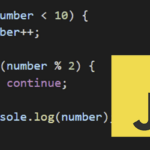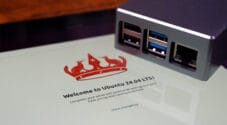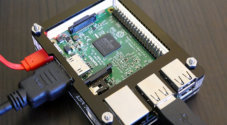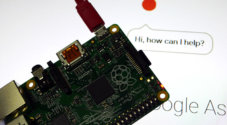This guide will explore some of the best operating systems that you can install on your Raspberry Pi.

There is a huge range of different operating systems that you can run on your Raspberry Pi. Each has its own advantages and disadvantages, and there might not necessarily be one perfect choice.
Some operating systems can focus on a particular function, such as acting as a media server, or it could be a more general operating system. You can even install an OS that turns your Pi into a smart home automation server.
Over the following few sections, we will be covering some of the best operating systems you can use on your Raspberry Pi. We have kept this list to a variety of operating systems that either offer something a little different, or are a major OS that officially supports the Pi.
Almost all of the operating systems we cover within this guide can easily be installed using Raspberry Pi Imager.
Top Operating Systems for your Raspberry Pi
Over the following sections, we will explore some of our most recommended operating systems for the Raspberry Pi.
Raspberry Pi OS – Best General OS for the Pi
The go-to operating system for the Raspberry Pi is always going to be the official Raspberry Pi operating system. It comes in two flavors: one is the full desktop version, and the other is the lite terminal-only release.

One of the most significant advantages of using Raspberry Pi OS is that it always has the best hardware support. Once a new Pi is released, you can be certain it will continue functioning. Sometimes, you must wait months for other operating systems to catch up.
In addition to the hardware support, it is one of the best-optimized operating systems for the hardware. It has many optimizations that help you get the most out of your Raspberry Pi.
Most of the tutorials we write for the Raspberry Pi will assume that you are running this operating system.
Unless you have a particular use case, such as running a media center or a gaming-only device, we will always recommend this operating system as the best starting place.
Ubuntu – Alternative to using Raspberry Pi OS
A very popular alternative operating system for your Raspberry Pi is Ubuntu. If you have used Linux before, there is a considerable chance that you have run Ubuntu before.

You might want to use the Ubuntu operating system on your Raspberry Pi for a few reasons. First, you often get access to much newer versions of packages. Ubuntu updates more often than Raspberry Pi OS, allowing access to newer packages.
Another reason is that you are more comfortable using Ubuntu’s interface.
Using Ubuntu on your Raspberry Pi isn’t without its drawbacks. Even though they officially support the Raspberry Pi hardware, the desktop variant of Ubuntu feels significantly heavier, giving you less room to run the applications you like.
If you want to use Ubuntu without a desktop interface, you will want to look into running Ubuntu Server on your Raspberry Pi. The server variant is kind of the equivalent of Raspberry Pi OS Lite.
Lakka – Great Retro Gaming OS
If you ever want to play retro games using a Raspberry Pi, one of the best choices for your operating system is Lakka. While everyone is likely familiar with RetroPie, the OS release of that software isn’t updated very often.

Lakka is an operating system that converts your Raspberry Pi into a retro gaming machine. It is built on top of LibreELEC, making it incredibly lightweight.
Lakka has numerous features that make it a great choice. First, it supports a ton of retro consoles right out of the box thanks to its use of the popular Retroarch software.
Additionally, it has many quality-of-life features, such as automatic recognition of your game controllers. This helps reduce the hassle of configuring things yourself.
It also has built-in support for setting up network shares; all you need to do is enable a service, and you can easily get your games over to your Raspberry Pi.
LineageOS – Best Android Operating System for the Raspberry Pi
This next operating system allows you to run Android natively on your Raspberry Pi. This is all thanks to the hard work of KonstaKANG, who ported the popular Android OS, LineageOS to the Raspberry Pi.

If you are wondering why you might want to run Android on your Raspberry Pi, many applications have never been ported to native.
It also opens you up to many streaming services that simply refuse to work on a normal version of Linux. It is also one of the few ways that you can actually set up a Plex Media Player with a Raspberry Pi.
OSMC – Easy Solution to Turning You Pi into a Media Center
Moving on, OSMC is a great operating system for those who want to turn their Raspberry Pi into a media center.

While Kodi has reduced in popularity with many moving over to setting up a Plex Media Server instead, it still has many fans.
The advantage of using OSMC to run your media center on your Pi is that it has been highly optimized just for running media. This helps ensure you get the most out of your device and can play files that would typically struggle.
Volumio – Convert your Raspberry Pi into a Headless Music Player
This operating system is one of the best for the Raspberry Pi if you want to convert your device into a versatile and powerful headless music player.

Volumio has been around since the early days of the Raspberry Pi and has continued to be one of the best music player operating systems you can install.
Using this operating system, you can easily convert any set of speakers into smart ones. You can retain the speakers you enjoy without feeling forced to invest either in an expensive modern amplifier or a brand-new set of speakers.
This music player operating system is controlled through a web interface, so you don’t have to worry about attaching a screen.
Of course, you will probably want to invest in a DAC for your Pi to make the most of this. This will enable you to get better audio quality than the Raspberry Pi’s digital connections offer.
Home Assistant OS – Best Smart Home Operating System for the Raspberry Pi
This next Raspberry Pi operating system is one of the best you can use to add smart functionality to your home.

If you want to use your Pi to control your smart home, you really cannot go past Home Assistant OS. Home Assistant is an incredibly well supported software with a highly active development community. It can be used to control and automate most of your home.
There are very few devices that aren’t supported by either the base Home Assistant software or by
We use Home Assistant within our own home to help automate things such as gate opening, lights, and even gardening.
You can even use one Raspberry Pi running the Home Assistant operating system to monitor other Raspberry Pi’s.
DietPi – Slimmest Raspberry Pi Operating System
The final Raspberry Pi operating system we are covering is one you will want to use when you need as lightweight of an operating system as possible.

DietPi is basically an extremely stripped-back version of Debian for your Raspberry Pi. Its pure focus is to minimize the CPU and RAM usage of your Raspberry Pi. This is useful if you have a particular task that requires you to squeeze every little bit of performance out of your Pi.
The team even provides a huge range of optimized or configured software to run on this super lightweight Raspberry Pi operating system.
One thing to be aware of, though, is that using it can be quite different from Raspberry Pi OS Lite due to some of the wide changes in this operating system. Packages that are available by default on Lite may need to be installed when running DietPi.
Conclusion
In this guide, we covered some of the best operating systems you can run on your Raspberry Pi. Each of those operating systems has its advantages, with some introducing much-needed functionality.
If you feel we are missing an operating system that should be mentioned, please feel free to comment below.
Please don’t hesitate to leave a comment below if you have any feedback on our list of best Pi operating systems. We know we haven’t covered all of them here, but we have tried focusing on ones that offer something different.
If you liked this guide, we recommend taking some time to explore some of our many Raspberry Pi projects to see what you can do with these operating systems.









